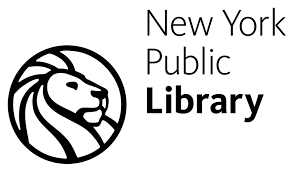Peer review process
Review Process
All articles are subject to double-blind peer-review. Authors will be informed of the review outcome by e-mail at the latest three months after paper submission. If the reviewers suggest changes or additions to the paper, then the corrected version of the paper will also be reviewed. Papers that are not accepted for publication after the second review cannot be submitted again. The editorial board of the journal determines the order of publication of all accepted papers.
Peer reviewer guidance
The primary purpose of peer review is providing the Editor with the information needed to reach a fair, evidence-based decision that adheres to the journal’s editorial criteria. Review reports should also help authors revise their paper such that it may be accepted for publication. Reports accompanied by a recommendation to reject the paper should explain the major weaknesses of the research; this will help the authors prepare their manuscript for submission to a different journal. Peer reviewers should adhere to the principles of COPE's Ethical Guidelines for Peer-reviewers. Confidential comments to the Editor are welcome, but they must not contradict the main points in the report for the authors. Peer reviewers should assess papers exclusively against the journal’s criteria for publication. The following should be respected: Reviewers should review the peer review policy of the Journal before revealing their reviewer role. Reviews should be conducted objectively. Personal criticism of the author is inappropriate, as are defamatory/libelous remarks. Reviewers should express their views clearly with supporting arguments and references. Reviewers should declare any potential competing interests. Reviewers should decline to review manuscripts with which they believe they have a competing interest resulting from competitive, collaborative, or other relationships or connections with any of the authors, companies, or institutions connected to the papers. Reviewers should respect the confidentiality of material supplied to them and not discuss unpublished manuscripts with colleagues or use the information in their own work. Any reviewer who wants to pass a peer review invitation onto a colleague must contact the journal in the first instance. Concerns relating to these points, or any aspect of the review process, should be raised with the editorial team. We ask reviewers the following types of questions, to provide an assessment of the various aspects of a manuscript:
Clarity and context: Is the abstract clear, accessible? Are abstract, introduction and conclusions appropriate? Please indicate any particular part of the manuscript, data, or analyses that you feel is outside the scope of your expertise, or that you were unable to assess fully. Please address any other specific questions asked by the editor. Reviewers should alert the Editor-in-Chief if they wish to make an allegation of publication or research misconduct, e.g. plagiarism or image manipulation, about an article they are reviewing.
Key results: Please summarize what you consider to be the outstanding features of the work.
Validity: Does the manuscript have flaws which should prohibit its publication? If so, please provide details.
Originality and significance: If the conclusions are not original, please provide relevant references.
Data & methodology: Please comment on the validity of the approach, quality of the data and quality of presentation. Please note that we expect our reviewers to review all data, including any extended data and supplementary information. Is the reporting of data and methodology sufficiently detailed and transparent to enable reproducing the results? Appropriate use of statistics and treatment of uncertainties: All error bars should be defined in the corresponding figure legends; please comment if that’s not the case. Please include in your report a specific comment on the appropriateness of any statistical tests, and the accuracy of the description of any error bars and probability values. Evaluation checklists can be found here. Conclusions: Do you find that the conclusions and data interpretation are robust, valid and reliable? Inflammatory material: Does the manuscript contain any language that is inappropriate or potentially libelous?
Suggested improvements: Please list suggestions that could help strengthen the work in a revision. References: Does this manuscript reference previous literature appropriately? If not, what references should be included or excluded? Attempts at reviewer-coerced citation will be noted against your record in our database.
Recognition for Reviewers
Build your reviewer profile with Web of Science
Web of Science Reviewer Recognition Services (formerly Publons) credits reviewers for their work, allowing you to record, verify, and showcase your contributions even if reviews are anonymous or manuscripts are unpublished. You can add your review here . Under Journal or conference you reviewed for, type: Ревија За Социјална Политика/Journal of Social Policy.
Add your peer review activity to your ORCID profile
You can opt-in to have Web of Science Reviewer Recognition Services automatically export your review history to your ORCID profile. Once set up, every verified review added to your Web of Science record will automatically be exported to your ORCID profile with a link back to the record on Web of Science. Web of Science transmits this data securely and makes sure not to compromise reviewer anonymity or infringe on journal policies.
You can also email the editor of this journal and ask for a confirmation document of your completed review for the Ревија За Социјална Политика/Journal of Social Policy.









